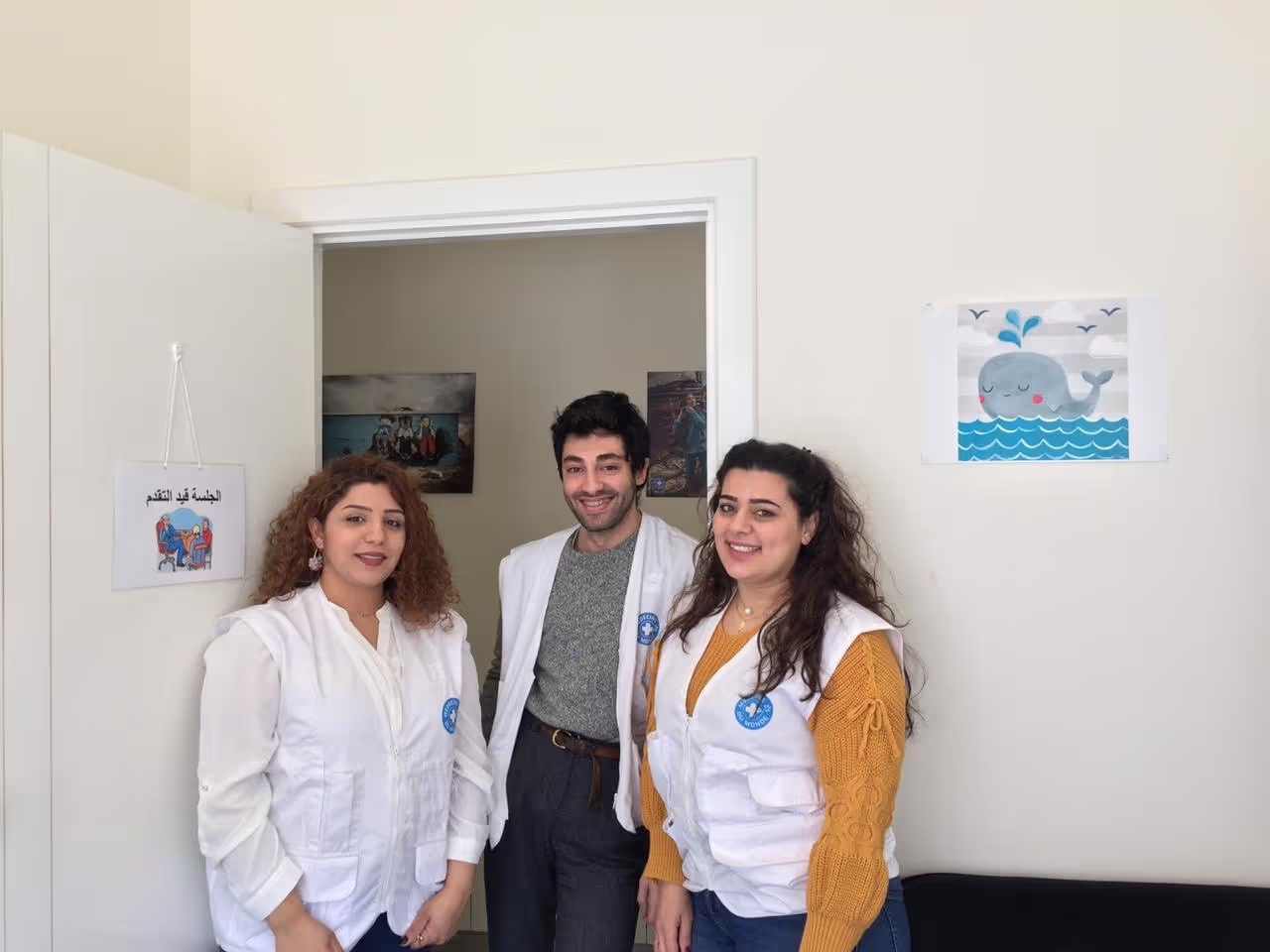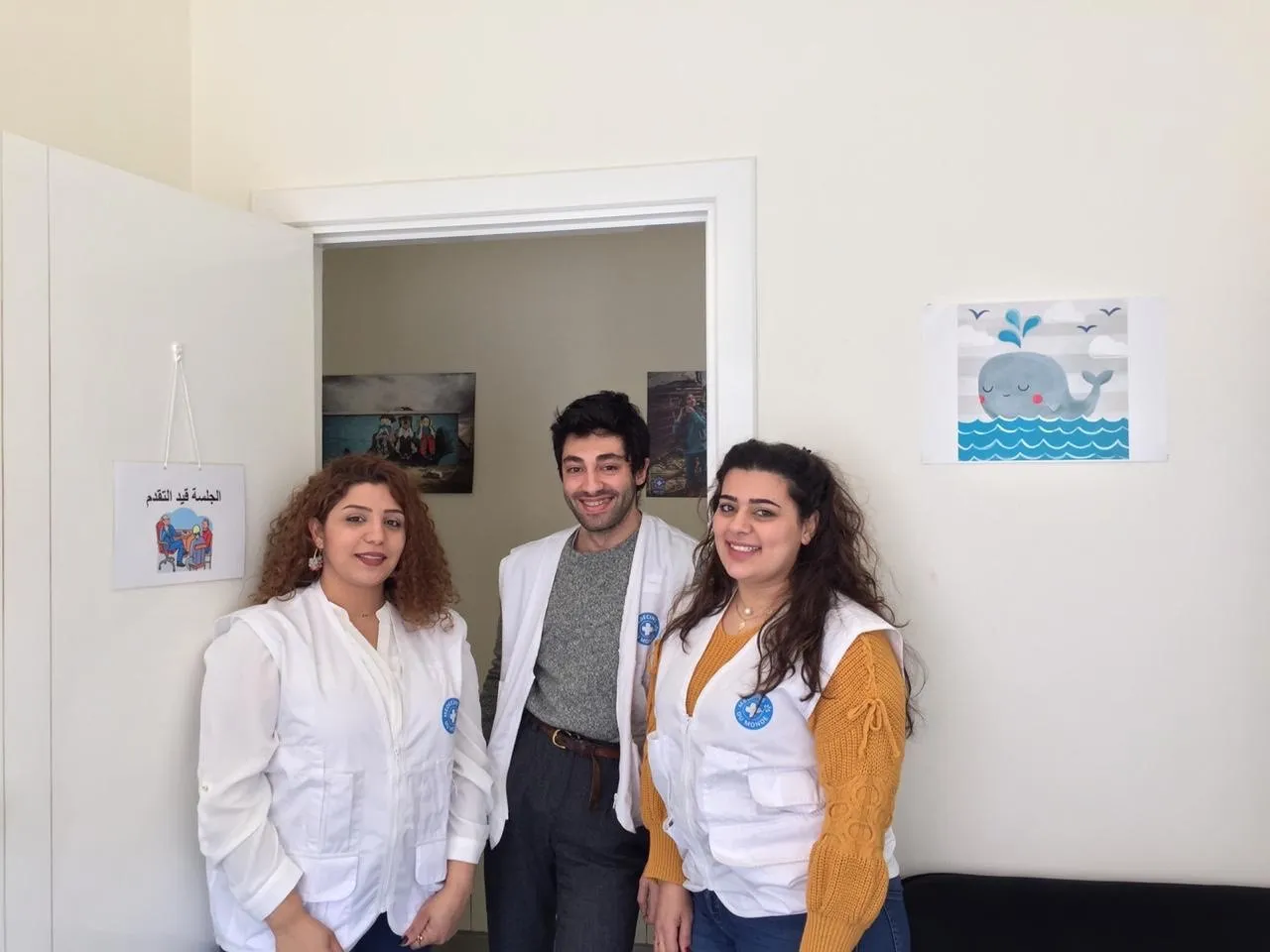Providing individual psychological treatment to Syrian refugee children with Common Elements Treatment Approach (CETA): First Impressions from Field Staff

Many Syrian refugee children that fled with their families to Lebanon have a history of significant trauma exposure in addition to the often chronic stressors of displacement. As a result, many of them suffer from psychological problems. However, most of these children don’t receive the help they need due to limited availability of mental health services.
In addition, most psychological support for the refugee population in Lebanon is provided through group programmes, which are not able to cater to the individual needs of the children. A promising approach that is likely to overcome several challenges of mental health service provision in humanitarian settings is Common Elements Treatment Approach (CETA), a transdiagnostic treatment approach that is based on the most effective components of cognitive behavioural therapy (CBT).
CETA was originally developed by Johns Hopkins University and University of Washington with support by the USAID Victims of Torture Fund. It is designed in such a way that it can be provided by trained lay counsellors and treatment can be adapted to the specific needs of the individual child. We are currently delivering CETA to Syrian refugee children based in Lebanon as part of our R2HC funded project that is adapting CETA to be delivered over the telephone. This is in order to more easily reach children that have a need for individual psychological treatment.
Here we provide a first report of the experience of our field work staff in Lebanon who have been delivering CETA face-to-face after extensive training and close supervision.
Nicolas Chehade (clinical psychologist and study coordinator):
“My involvement in this research project has made me love what I do even more as it continues to show me how important it is to seek to improve humanitarian aid.
I have found that a transdiagnostic treatment as concise as CETA can indeed work in treating different problems such as depression, anxiety and behavioural difficulties in children by working with both children and their caregivers.
"What I think makes CETA work efficiently in humanitarian settings is that every component involves caregivers and that it can easily be adapted to different cultural settings. Additionally, the manual is developed in a stepped approach that is easily accessible to lay people, thus facilitating our job in training lay counsellors and supervising them during their delivery of CETA.”
Stephanie Saad (lay CETA counsellor):
“Given that this is my first experience of being part of a research study, I was wondering how this would all work out. Could we really help people in a different way than we usually do when we provide mental health services in this setting? And would it really be possible to provide individual treatment over the telephone?
"However, when we started delivering CETA face-to-face to refugee children that visited our clinic, I often noticed the positive difference that CETA makes already half way through treatment. This experience confirmed to me that, yes, we can provide help in a new and different way.
I was particularly pleased when the first child that I treated as a CETA counsellor told me "I’ve changed now! I can live normally and play with the other children without having so many thoughts to think about and without being scared of waking up every morning."
This experience makes me not only proud of my work but also confirms that CETA can truly make a significant change in this population.”
Diana Abdul Rahman (lay CETA counsellor):
“I am convinced of the importance of what we do in the CETA study and the potential impact on the refugees we are working with.
"CETA is very useful for refugees in the difficult circumstances they have gone through and still live in. This treatment helps those who come in with depression a lot, and it can also help with other mental health problems such as anxiety and adapting to changes.
"Even though we sometimes face challenges such as having patients with complex mental health problems and caregivers not believing in the importance of mental health treatment of their children, we have been able to overcome these challenges one by one.
"In fact, every time we encounter such challenges, I remind myself that we are conducting important research on a new treatment approach that has never been implemented here before and we have to find out whether it will be useful. Hence, overcoming these challenges is a must. At the end of the day, we are often getting great results which encourage us a lot.”

In the next phase of the project we will be delivering a telephone version of CETA which we developed over the last year whilst delivering CETA face-to-face.
Authors: Michael Pluess, Nicolas Chehade, Stephanie Saad, Diana Abdul Rahman, Fiona McEwen
Stay updated
Sign up for our newsletter to receive regular updates on resources, news, and insights like this. Don’t miss out on important information that can help you stay informed and engaged.
Related articles


.png)
Explore Elrha
Learn more about our mission, the organisations we support, and the resources we provide to drive research and innovation in humanitarian response.